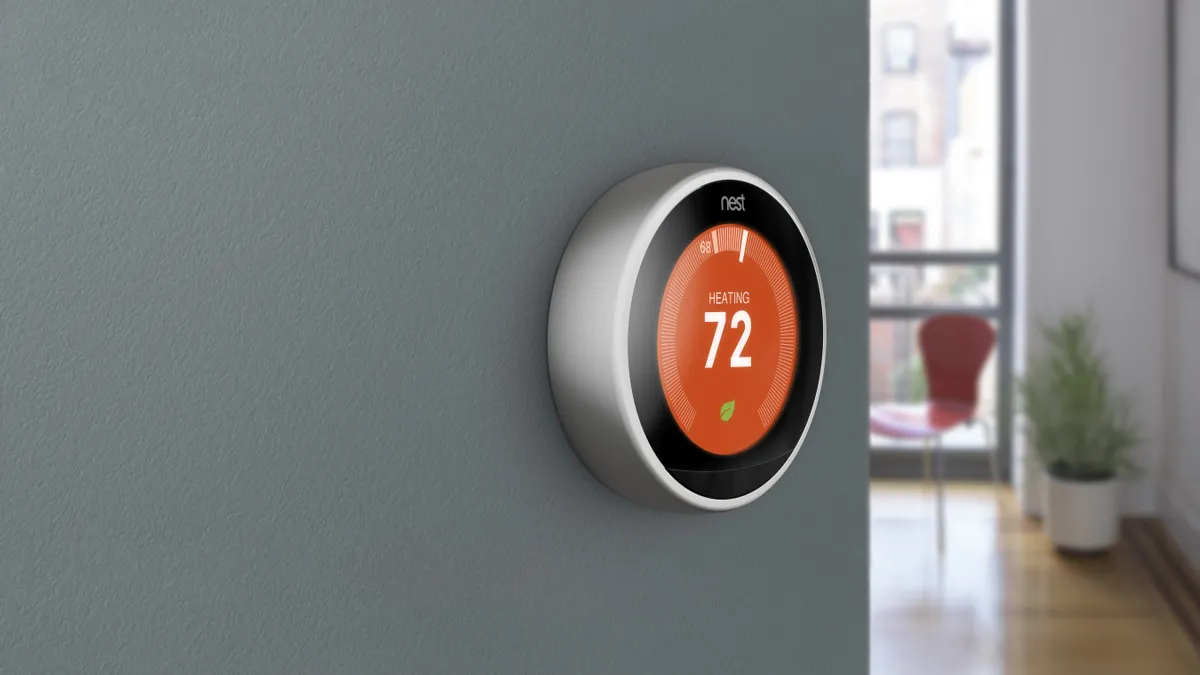Dive Brief:
- Nest Labs last week announced a significant expansion of energy offerings through the smart thermostat, adding more than 50 energy providers to the roster of companies providing rebates and rewards for residential customers.
- Owing to Nest's growing list of utility partners, more than 30% of homes in the United States now have access to a Nest Thermostat rebate or the Rush Hour Rewards program, Nest’s demand response service, according to a statement.
- Santee Cooper, South Carolina’s largest power producer, offers retail customers a $125 rebate on the Nest thermostat, the largest benefit back to consumers; Commonwealth Edison, the largest of Nest's new partners, will offer a $100 rebate to its 3.8 million customers in Illinois.
Dive Insight:
There have been recent questions about Google's Nest thermostat, which the company paid $3.2 billion for in 2014. But amid speculation the device may be underperforming its initial expectations, Nest's 30% figure really stands out. The company has expanded its services and utility partnerships, and almost a third of U.S. consumers have access to a rebate or demand response program utilizing the device.
At the heart of this expansion is the growing convergence of demand response and efficiency offerings, as utilities see potential program savings by combining some of their efforts. On the customer side, the combined offerings mean the possibility to boost program recruitment and participation.
Company officials point to a report by Navigant Research, which estimated integrated demand-side management spending would rise from $40 million this year to $1.2 billion in 2025. “This research is consistent with the growing interest we’re seeing in our Rush Hour Rewards service. And more than ever, energy providers are finding value in programs that offer both EE and DR components," said Ben Bixby, director of energy and enterprise business at Nest Labs.
Navigant senior analyst Brett Feldman spoke with Utility Dive about the predicted growth in integrated offerings. “There will be a natural evolution, as utilities begin thinking about this in an integrated fashion," he said. "It will grow as a percentage of budgets over time as these ideas spread."
Nest's new partnership with Kansas City Power and Light (KCP&L) program is "a great example," Bixby said, of the potential for utilities and their customers when efficiency and demand response offerings are merged.
KCP&L is implementing a residential demand-side management program "designed to replace and expand upon KCP&L’s existing programmable thermostat program," according to Nest. Customers will be offered a free Nest Thermostat when they agree to participate in KCP&L’s demand response program and a $25 annual incentive for participating each year.
Among the new partnerships Nest has recently inked, the company will be working with: Commonwealth Edison, Enbridge Gas Distribution, Vectren, United Cooperative Services, Portland General Electric and Puget Sound Energy.










